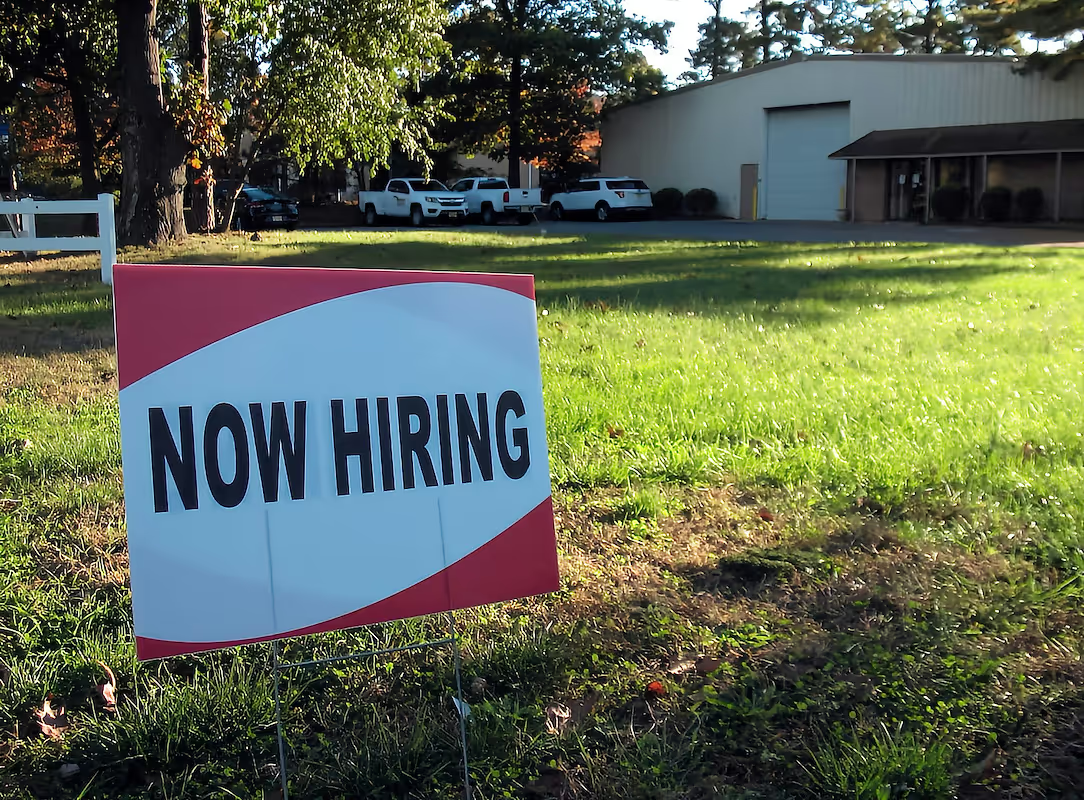
Kudos has partnered with CardRatings and Red Ventures for our coverage of credit card products. Kudos, CardRatings, and Red Ventures may receive a commission from card issuers. Kudos may receive commission from card issuers. Some of the card offers that appear on Kudos are from advertisers and may impact how and where card products appear on the site. Kudos tries to include as many card companies and offers as we are aware of, including offers from issuers that don't pay us, but we may not cover all card companies or all available card offers. You don't have to use our links, but we're grateful when you do!
Does Changing Jobs Affect Your Credit Score?
July 1, 2025


Quick Answers
Changing jobs does not directly impact your credit score, as employment history is not a component of your credit report.
Lenders, however, do assess your income and job stability when you apply for new credit, which can affect your ability to secure a loan or mortgage.
A significant drop in income or a move to a less stable field could influence a lender's decision, even if your credit score remains unchanged.
What Is Changing a Job?
Changing jobs is the process of leaving one employer to begin working for another, a common step in professional development. People make this transition for various reasons, including seeking higher pay, better career prospects, or a change in work-life balance. This professional shift can also intersect with personal finance, particularly in how it relates to one's credit profile.
When you apply for credit, lenders often assess your income and employment stability to gauge your ability to repay debt. A recent job change is one factor they may consider during this review process. A new position, especially one with a higher salary, can demonstrate improved financial capacity to potential creditors.
How Changing Jobs May Impact Your Credit Score
While it might seem like a career move would sway your credit score, changing jobs doesn't directly impact it. Your employment history is not a factor used in credit scoring models.
No Direct Score Impact: Your credit report focuses on your debt and payment history, not your employer or salary. Because of this, simply starting a new job will not cause your credit score to change.
Lender Perception: When you apply for a major loan, like a mortgage, lenders assess your overall financial stability. They will verify your employment and income, and a recent job change can sometimes be viewed as a risk, potentially affecting loan approval.
Income and Payments: The primary way a job change can indirectly affect your credit is through your income. If you experience a pay cut or a gap in employment, you might miss debt payments, which will be reported to credit bureaus and lower your score.
Credit Utilization: A temporary drop in income could lead you to rely more heavily on credit cards. This increases your credit utilization ratio—the amount of credit you're using compared to your limit—which can negatively affect your score.
How Much Will Changing Jobs Affect Your Credit Score?
While changing jobs doesn't directly impact your credit score, certain related factors can have an indirect effect. Here are a few key things to keep in mind during your transition.
- No Direct Impact: Your credit report doesn't list your employer, so a job change won't cause your score to drop. Lenders, however, do consider your employment history and income when you apply for new credit.
- Income Verification: Lenders need to verify your income for new loans or credit cards. A recent job change can make this verification process more complex, potentially causing delays or even denials.
- Lender Perception: Frequent job hopping might be seen as a sign of instability by some lenders. They prefer a consistent employment history, as it suggests a reliable ability to repay debt over time.
How You Can Avoid Changing Jobs Affecting Your Credit Score
Secure New Employment First
Aim for a seamless transition between jobs to show lenders a consistent income history. Lenders value stability, and avoiding employment gaps can prevent your financial profile from raising red flags during credit checks. This demonstrates financial responsibility and reliability to potential creditors.
Manage Your Existing Credit
During a job change, focus on maintaining your current credit health. Continue making all payments on time and try to keep your credit card balances low. This consistency shows lenders you can manage your finances responsibly, even during periods of transition.
Postpone Major Loan Applications
It's wise to delay applications for significant loans, like a mortgage or car loan, until you are well-established in your new role. Lenders prefer a stable employment history, and applying during a transition period could lead to rejection or less favorable terms.
Ways to Improve Your Credit Score
Improving your credit score is an achievable goal that can significantly impact your financial health. With consistent effort and proven methods, you can boost your creditworthiness, though most people see meaningful changes within three to six months.
- Monitor your credit reports. Obtain your free credit reports from the three major bureaus and check them for inaccuracies that could be dragging down your score. Disputing errors is a critical step toward a healthier credit profile.
- Set up automatic payments. Your payment history is a major component of your credit score, so setting up automatic payments helps ensure you never miss a due date.
- Lower your credit utilization ratio. Aim to use less than 30% of your available credit. You can achieve this by paying down your balances or requesting a credit limit increase on existing accounts.
- Become an authorized user. If you have a trusted friend or family member with a strong credit history, ask to be added as an authorized user on one of their cards. Their good habits can positively influence your score.
- Diversify your credit mix. Lenders prefer to see that you can responsibly manage different types of credit. Having a mix of revolving credit (like credit cards) and installment loans (like auto or personal loans) can be beneficial.
The Bottom Line
Changing jobs won't directly harm your credit score. But, income instability during the transition can indirectly affect your ability to manage debt and qualify for new credit.
Frequently Asked Questions
Will my credit score drop immediately after I change jobs?
No, changing jobs does not directly impact your credit score. Credit reports don't list employment history, so the change itself won't cause a score drop.
Do lenders check my employment history when I apply for a loan?
Yes, lenders verify your employment and income to assess your ability to repay debt. A stable income, even at a new job, is what they prioritize.
Does being unemployed affect my credit score?
Unemployment itself doesn't lower your score. However, if it leads to missed or late payments on your debts, those negative actions will definitely hurt your credit.

Supercharge Your Credit Cards
Experience smarter spending with Kudos and unlock more from your credit cards. Earn $20.00 when you sign up for Kudos with "GET20" and make an eligible Kudos Boost purchase.
Editorial Disclosure: Opinions expressed here are those of Kudos alone, not those of any bank, credit card issuer, hotel, airline, or other entity. This content has not been reviewed, approved or otherwise endorsed by any of the entities included within the post.





















.webp)
.webp)
.webp)
.webp)















